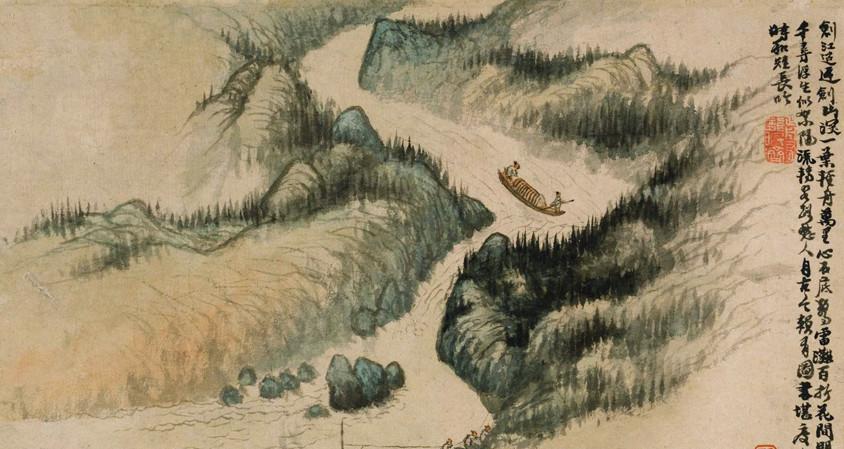The landscape is not deep and there are few apes and birds, and it is still necessary to move in this life. Straight over the Tianzhu Stream, the single tree is a bridge knot.
Lin Kui was a famous literati of the Northern Song Dynasty, who lived in seclusion in the Lonely Mountains, planted plums and raised cranes, wrote poems and filled in words, and lived a life like a god. Lin Kui was brilliant, and many dignitaries and dignitaries invited him to become an official, but he refused. During the reign of Emperor Zhenzong of Song, the emperor sent someone to invite Lin Kui out of the mountain, and he wrote this poem "Lonely Mountain Hermitage Book Wall" to tell the emperor that he was used to the life of seclusion, so don't let him repeat the red dust.

Lonely Mountain, located on the shore of the West Lake, is a hermitage for Lin Kui. He likes the beautiful landscape here, and he prefers the plum blossoms planted by himself in the mountains. It is said that Lin Kui likes to wear a white coat, or swim in the mountains, or boat on the surface of the water, people will show envy when they see his dashing appearance. Lonely Mountain, known as "mountain", is actually a hill, so Lin Kui said that "the landscape is not deep". Lonely Mountain is not an inaccessible place, there are no apes, and birds are rare. Once upon a time, Lin Kui also thought about whether to leave the Lonely Mountain and move elsewhere.
What the? Didn't Lin Kui want to live in seclusion, he wanted to go out of the mountain! Don't worry, then look, the emperor summoned him, of course he paid attention to the tone of his speech. Even if you want to refuse, be a little more euphemistic. Thinking of this, I understood that Lin Kui was being polite.
What Lin Kui wanted to express was that if he moved his mind to move away from the Lonely Mountain, he would move to Tianzhu Mountain. Because Tianzhu Mountain is farther away from the world than Lonely Mountain. He was willing to live in a remote and uninhabited place, even if he waded through the stream and crossed the canoe bridge every day to go home, he did not regret it.
Lin Kui wrote this poem to emphasize his determination to live in seclusion. The implication was that if the emperor bothered him again, he would move to the mountains and hide. If he hid in Tianzhu Mountain, it would not be easy to find him again. The best thing to do was that the emperor did not come to disturb him, and he continued to live in seclusion in the Lonely Mountain. Seeing it, I didn't expect Lin Kui's emotional intelligence to be so high. He refused the emperor's invitation and made the emperor feel guilty and should not disturb his indifferent and peaceful life.
A hermit in the mountains, it is difficult to separate from the world. Lin Kui understood this, so he wrote a poem Mingzhi to tell the world that his pursuit would not change. In this way, each other saves face and does not hurt and is angry. Later generations spoke highly of this poem, and felt that after reading it, they could let go of the troubles of the world and enjoy a quiet life. Some people use the word "邃美" to describe this poem, implying that Lin Kui is of noble character.
After Lin Kui's death, Emperor Renzong of Song gave him the courtesy name "Hejing". Therefore, posterity honored him as Lin Hejing. Lin Kui lived in the richest era in the history of the Northern Song Dynasty, and he insisted on his choice and devoted his life to the landscape and water. Don't feel that he is passive and avoidant, as can be seen from his poetic works, he really enjoys indifference, is willing to be calm, and pursues the communication between man and nature.